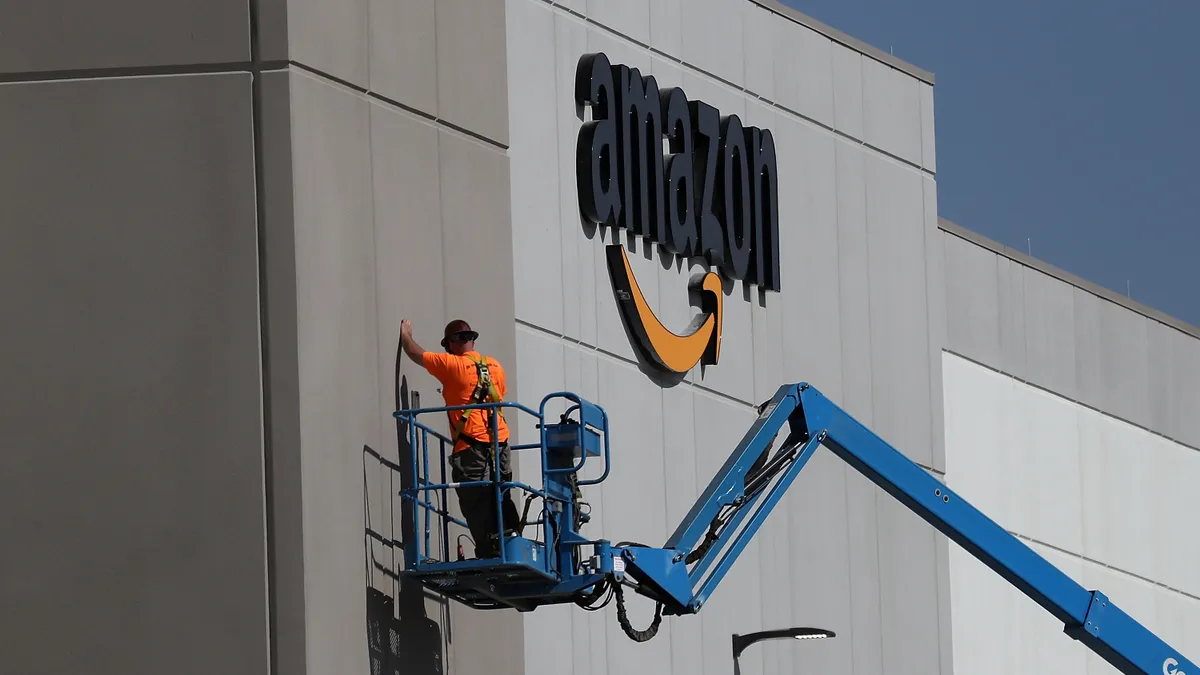UPDATE: June 16, 2021: Amazon's COVID-19 test, which got FDA emergency authorization in March, was originally designed for use by company employees but is now available for $39.99 to the public. Consumers use a nasal self-swab at home that is sent to a centralized lab for processing, with a website provided for viewing their results.
Dive Brief:
-
Amazon has received emergency use authorization from FDA for a direct-to-consumer kit for at-home, unsupervised self-collection of COVID-19 samples.
-
The tech giant first landed an EUA for its Amazon Real-Time RT-PCR Test for Detecting SARS-CoV-2 in March. In later filings, Amazon subsidiary STS Lab Holdco secured clearance for self-collection and a second EUA for a DTC product.
- Amazon established laboratories in Kentucky and the U.K. to process COVID-19 tests for employees that could serve as a launchpad for entering the wider diagnostics market.
Dive Insight:
Amazon has been edging into healthcare for years, acquiring online pharmacy PillPack in 2018 before disclosing its on-demand healthcare service earlier this year. As COVID-19 spread, Amazon initiated an in-house COVID-19 testing service for employees, initially in the U.S. and later in the U.K. The site in the U.K. has now reportedly processed 900,000 samples.
The rollout has hit problems, notably when almost 4,000 employees were given incorrect results, but the labs have largely shown that Amazon can process tests and share results with authorities. As the need for in-house COVID-19 testing falls, Amazon will have excess diagnostic capacity.
Amazon recently took a step toward using the capacity to test the U.S. public by securing an EUA for its DTC test. The website used to register the kit, AmazonDx.com, is currently available to people who work at Amazon and affiliated organizations. The EUA paperwork suggests the device may be intended for use by the wider public. One line in the process is "purchase your kit."
FDA granted emergency authorization to the test on the strength of an analysis of 339 specimens taken from "the intended use population" of asymptomatic Amazon employees at seven sites. The FDA-authorized comparator determined 270 of the samples were negative and 69 were positive. The Amazon test concurred on all the negative samples but only detected 66 positive specimens.
Positive agreement of 95.7%, coupled to a negative agreement of 100%, was enough to secure EUA.
Amazon's usability study found its testing laboratory received 88 of the 92 requested samples. Of the 88 samples, four were received more than 96 hours after collection and three could not be linked to a specific individual because they were improperly registered.
The company responded to the problems by sending an email and SMS text message within two hours of kit registration to stop shipping delays and by clarifying its instructions. A follow-up study received a higher proportion of usable samples.













